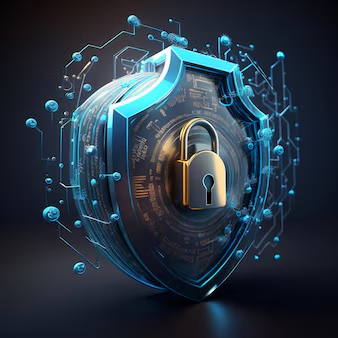As most of us are so related to the technology-driven universe today, it has also become more crucial than ever to consider staying safe online. From keeping personal data safe to financial transactions secure, the need for a comprehensive and foolproof online security framework has become indispensable. With regards to ever-evolving cyber threats, knowing Safety and making sure everything your site uses adheres to best security practices has never been more critical for guarding against what could go wrong. The range of threats has also evolved considerably during the last few decades, from teenager’s script kiddies wreaking havoc for kicks to very skilled attackers. Take note: Threats were less terrible (from amateurs and jokesters), but now from the hackers that can ruin you as of today, most are fully capable. It is the modern generation of harmful cyber-threats to real data shown in the form of phishing, ransomware, malware, or other instances including unauthorized access over personal & work operations. Cybercriminals conduct phishing attacks, where they send a link to an innocent-looking email or message, and when clicked by the user it starts capturing their personal information such as passwords, credit card numbers, etc. Ransomware is another type of malware that encrypts the files in the user’s computer & device completely on demand of ransom value from victim users for file decryption functionality.
Malware: Malicious software that is designed to gain unauthorized access or to cause unintentional harm. Data Reliability subject to security by design, any breach or leak of confidential information will effectively corrupt our Data Integrity and potentially identity theft/fraud.
Internet security basics
1. Create robust passwords: One of the most essential and basic steps to keep your online safety is always strong passwords. A strong password generally combines letters of upper and lower case with numbers in addition to some special character. Avoid information that can easily be discovered about you, such as names and birthdays or every day words. Well, a password manager can generate and store strong, encrypted passwords for you.
2. 2FA is Short for Two-Factor-Authentication: This just means your log in has two different components a pass word plus some other 2nd factor. It could be anything from a code on your phone, to the fingerprint scanning. If there are any accounts with 2FA in place then even if that shady hacker has managed to figure out and nab your password their hand is still way up the security skirt.
3. Routine Software Upgrades: Keeping your software updated, in particular operating systems and applications is just as important for maintaining online security. In addition, a lot of updates are security patches; vulnerabilities that cybercriminals can exploit in an attack. Enable auto-updates, if possible, to ensure that you get all security updates they provide.
4. A Trustworthy Connection: Ensure that the site running your financial transactions or even just viewing confidential data is provided through a secure connection. https:// When on websites, ensure they start with “https://” the S is for secure. Whenever possible, avoid doing sensitive things over public Wi-Fi the networks are less secure and more susceptible to eavesdropping.
5. Be cautious of phishing: Always be weary with unsolicited emails/messages that ask you for an email and invite a click. Always verify the identity of a person who contacts you directly, by reaching out to them through an established and trusted method.
6. Backups: Your important data should be backed up frequently. It will not save you just from ransomware but backups, so it saves the data on another hard drive and if your current one breaks to make the price seem even better in restoring all files without having the payment requested value. Take (at the very least) physical backups as USB external drives and take cloud backup to be on the safer side. Prevent Cross-Contamination The rise of identity theft in the digital age has been a huge problem.
WATCH OUT FOR GIVING AWAY TOO MUCH PERSONAL INFORMATION ONLINE:
The first and biggest one to realize is do not give out a lot about yourself online or someone might steal your identity. Always monitor your bank, credit, and debit card statements against a suspicious transaction to its consequences. Consider placing a fraud alert or credit freeze on your major credit reports if you suspect that someone has stolen your personal information. So, what does the future hold for the world of research distribution? It should be mentioned here as well that the emerging trends in technologies like artificial intelligence or machine learning are being used to create even more sophisticated attacks. The proliferation of every Internet of Things (IoT) device, opens up another vector for exploitation unless secure deployment can be achieved. In a world where cyber threats are evolving by the day, and changing more frequently than businesses can respond every individual indeed every organization too must become pro-active in anticipating problems before they rear their head. This can be achieved by staying aware of attacks, embracing security practices, and adopting new defenses.
Conclusion
Security has always been a moving target as the world of online security progresses, new threats and challenges that we face. So, keep updated with the fundamentals of online security and stay alert to avoid falling victim to cybercriminals for life. For sure in this busy daily routine, all in the digital world, everyone should be secure and safe over the internet to avoid theft free environment of one’s identity. That is how much money exactly in your accounts/assets should be very well protected anyhow that must into general protection of Intangible rights as Digital health.
